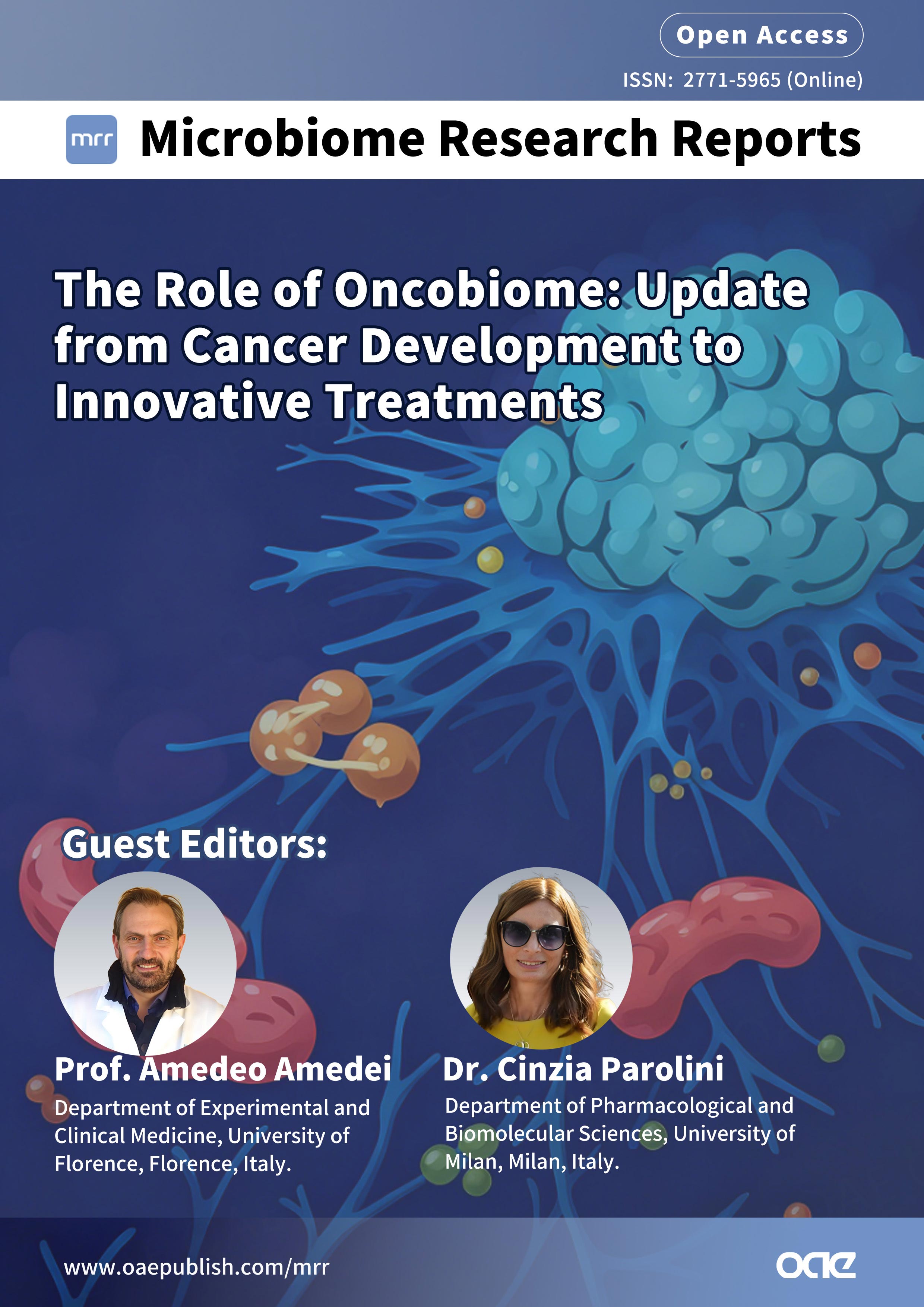
Topic: The role of the Oncobiome: Updates from cancer development to innovative treatments
A Special Topic of Microbiome Research Reports
ISSN 2771-5965 (Online)
Submission deadline: 22 May 2026
Guest Editors
Special Topic Introduction
Microorganisms comprise a diverse array of microscopic entities, including bacteria, fungi, viruses, archaea, and protists, that colonize the human skin, intestines, and respiratory tract. These microorganisms establish complex symbiotic relationships with the host to maintain health. When this equilibrium is disrupted by genetic or environmental factors, commensal microbes may become conditionally opportunistic pathogens, leading to alterations both locally and in distant organs.
Globally, cancer incidence and mortality continue to rise. Accumulating evidence suggests that inflammatory processes play a central role in cancer pathophysiology. Moreover, current cancer research emphasizes the tumor microenvironment (TME) as a crucial factor in cancer progression and treatment efficiency. The TME is the site of dynamic interplay among neoplastic cells, immune cells, and microorganisms.
Clinical studies have shown that the composition of the gut microbiome can be modulated through fecal microbiota transplantation and probiotic administration. Such interventions can influence immune cell infiltration, cytokine release, and inflammatory responses in the intestine and surrounding tumor tissues, thereby improving the immune status of the TME. Consequently, the microbiome serves as both a biomarker for disease prognosis and a promising therapeutic target. Furthermore, as a key modulator of drug metabolism, the microbiome can affect therapeutic effects. Strategies aimed at modulating the microbiome to enhance chemotherapy efficacy while mitigating treatment-limiting toxicities represent an emerging direction in cancer therapy. In this context, reconstituted high-density lipoprotein (rHDL)-based nanoparticles have been investigated as drug delivery systems for chemotherapeutic agents to reduce their toxicity.
This Special Issue invites contributions that advance our understanding of the oncobiome in cancer development, progression, and treatment, highlighting innovative therapeutic strategies and mechanistic insights that may transform clinical oncology.
Keywords
Microbiome, cancer, dysbiosis, tumor microenvironment, immune system, inflammation, high-density lipoproteins, chemotherapy
Submission Deadline
Submission Information
For Author Instructions, please refer to https://www.oaepublish.com/mrr/author_instructions
For Online Submission, please login at https://www.oaecenter.com/login?JournalId=mrr&IssueId=mrr25112110293
Submission Deadline: 22 May 2026
Contacts: Lauren Lv, Assistant Editor, [email protected]









